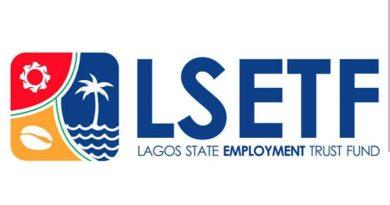Afreximbank announce program to empower African corporates on AfCFTA
Afreximbank is excited to announce the launch of a new capacity development program titled “AfCFTA: Genesis, Dimensions and Prospects for African Corporates” aimed at empowering African businesses to take advantage of the opportunities offered by the African Continental Free Trade Area (AfCFTA).
This program, led by Afreximbank Academy (AFRACAD) in partnership with the AfCFTA Secretariat, is designed to provide companies with the necessary skills and knowledge to succeed in the changing landscape of intra-African trade. The cost per program participant is $2,000
Taking place from 9 to 13 September 2024 in Cairo, Egypt, this training program, in collaboration with the American University in Cairo and the AfCFTA Secretariat, will focus on the business implications of AfCFTA and the various opportunities it brings for African businesses. It will also offer practical insights to members of Afreximbank’s TRADAR Club and other participants to help them make the most of the Agreement. Furthermore, it will simplify the different treaty instruments of the AfCFTA into easily understandable language for businesses. Lastly, it will outline the requirements that businesses need to fulfill in order to seize the opportunities in the expanding AfCFTA market.
Dr. Yemi Kale, the Group Chief Economist & Managing Director of Research at Afreximbank, emphasized the significance of developing the necessary skills and capabilities for local industrial activities in order to allow all African nations to take advantage of the trade opportunities provided by the AfCFTA.

Dr. Kale stated that Afreximbank plays a crucial role in supporting the implementation of the AfCFTA, with a focus on transitioning Africa from a collection of fragmented, commodity-dependent economies to a dynamic, unified market of approximately 2 billion people with a combined GDP of around US$3.4 trillion. He also highlighted the importance of well-informed and prepared businesses in driving trade and investment within Africa and beyond. Through initiatives like this training program, Afreximbank aims to equip African businesses with the tools needed to fully leverage the opportunities presented by the AfCFTA, ultimately boosting their competitiveness and contributing to sustainable economic growth across the continent.
Mr. Tsotetsi Makong, Head of Capacity Building and Technical Assistance at the AfCFTA Secretariat, highlighted the crucial role of capacity building in the successful implementation of the AfCFTA. He emphasized the need for a value chain approach to capacity building, focusing on human resources competences, administrative procedures, translation of the AfCFTA into national and regional regulatory infrastructure, and fostering a predictable institutional framework. Additionally, he stressed the importance of ensuring that trade transactions are supported by necessary hard and soft infrastructure. Mr. Makong also emphasized the significance of investing in capacity building for Corporates and SMEs to mobilize home sourced investments and reduce deficits with third country markets, ultimately de-risking the African continent in terms of investments.
Insufficient comprehension of the technical intricacies associated with the interpretation of the Agreement is hindering the complete realization of the benefits of the AfCFTA, despite its significant potential to bolster economic growth. Additionally, certain businesses are unable to fully capitalize on the Agreement or effectively compete with the increasing number of new competitors from different areas.
The training program is designed to address the challenges faced by African businesses and enhance their capacity to shift from local production for local consumption to local production for export markets. Participants will include African corporations, trade support institutions, export trading companies, the foreign trade community, and bank executives. The program was developed by Afreximbank and will be implemented in collaboration with the American University in Cairo and the AfCFTA Secretariat.

Training Theme: AfCFTA: Genesis, Dimensions and Prospects for African Corporates
- AfCFTA: Genesis, Dimensions and Prospects for African Corporates
Course Overview – AfCFTA: Genesis, Dimensions and Prospects for African Corporates
- The African Continental Free Trade Area Agreement (AfCFTA) represents the African continent’s aspiration for economic integration and the advantageous utilization of its abundant natural resources. This landmark trade agreement has garnered attention from regional and global trade and development circles, including international economic powerhouses, business communities, think tanks, and intellectuals.
- The AfCFTA commits African countries to eliminating tariffs on up to 97 percent of goods, gradually liberalizing trade in services, promoting investment, and addressing various non-tariff barriers.
- It is expected that the AfCFTA will transform Africa from a fragmented, commodity-dependent group of economies into a dynamic, integrated single market of over 1.2 billion people with a combined GDP of US $3.4 trillion. As Africa embarks on the journey towards the full implementation of a common market under the AfCFTA, it is crucial to establish the necessary competencies and capacity for local industrial activities to ensure that all countries benefit from the single market arrangements.
- Afreximbank, the key partner to the AU in the implementation of the AfCFTA, has implemented several initiatives in recent years to promote not only intra-African trade but also extra-African trade and investments. This Capacity Development Programme, organized by the Trade Intelligence Solutions (“TRIN”) of Afreximbank in collaboration with the AfCFTA Secretariat and the American University in Cairo (“AUC”), focuses on the business implications of the AfCFTA for African Corporates and Market Opportunities.
Objectives – AfCFTA: Genesis, Dimensions and Prospects for African Corporates
i) Deepen the knowledge of the participating African business community about regional integration in Africa, including the challenges that were eventually overcome.
ii) Enhance the overall understanding of the Agreement and key provisions and implications, understanding of the different protocols e.g. Rules of Origin, Schedules of Tariff and Services offers, intellectual Property Rights and investments, Dispute Settlement.
iii) Ensure that African Corporates understand and are able to comfortably navigate the rules and procedures under the evolving AfCFTA. This will include providing information, advice, and practical assistance to participants where necessary.
iv) Deepen participants knowledge on how to trade and invest under AFCFTA; Risk Analysis; market identification techniques and market entry strategies, AFCFTA Institutional mechanisms, Intra- African trade and investment financing instruments and sources.
v) Provide a channel to guide the would-be and existing exporters of goods and services on the developments and business opportunities in Africa under the AfCFTA and them with knowledge required to overcome tariff and non-tariff barriers – e.g. from logistics; government agencies and Connect to Intra-African markets.
vi) Provide an in-depth understanding of the operational instruments and the facilitating Mechanisms PAPSS, Transit, Standards, Adjustment Fund, ATG etc.
Create awareness, promote and drive sales for the Bank’s traditional trade finance products and facilities as well as the Bank’s other digital solutions.
Program Modules – AfCFTA: Genesis, Dimensions and Prospects for African Corporates
Day-1 (Face to face at the American University in Cairo)
Module I – Regional Trade and Integration Landscape in Africa
- Background on Regional Integration in Africa
- The 8 AU-recognized RECS
- AU Efforts towards African Economic Integration
Module II – AfCFTA: the Game Changer
- Analysis of Intra and Extra African Trade
- Analysis of Africa’s Weight and Potential in the International Trading System
- Rationale behind AfCFTA
- AfCFTA’s Main Act: Principles and Objectives
- AfCFTA’s Institutional and Negotiating Structures
- Unpacking AfCFTA’s Protocols and Progress Achieved so far
Day-2 (Face to face at the American University in Cairo)
Module III – Priority Sectors for the Development of Regional Value Chains, Attracting Investment and Boosting Growth
- Trade in Goods
- Trade in Services
- AU Efforts towards African Economic Integration
Module IV – Enabling Business Environment and Operational Instruments
- AfCFTA e-Tariff Book and AfCFTA Hub
- Non-Tariff Barriers Monitoring, Reporting and Resolution Mechanisms
- AfCFTA Adjustment Fund
- Pan African Payments and Settlement System
- Automotive Fund
- Intra-Africa Trade Fair “IATF” and the IATF Virtual
- Afreximbank-African Collaborative Transit Guarantee Scheme
- Afreximbank’s Africa Trade Gateway “ATG”
- Other Afreximbank Facilities and Financial Products
Day-3 (Face to face at the American University in Cairo)
Module V – Opportunities and Tools for the Business Community
- Engagement Opportunities for African Businesses
- How to Trade and Invest under AFCFTA
- Market risk analysis techniques
- Market identification techniques and market entry strategies
- Trade and Investment Risks (Trade Remedies and Dispute Settlement)
Module VI – Case Studies from the Guided Trade Initiative
- The AfCFTA Guided Trade Initiative: Case Studies to Show How Companies Were Able to Trade under New Rules
- Role of Export Trading Companies “ETCs.”
Day-4 (Face to face at the American University in Cairo)
Module VII – Final Project – AfCFTA Business Strategy
- Wrap Up and Final Project Coaching
- Trade and Investment Under AfCFTA – Market Entry Strategy for a Product in Africa
Target Audience – AfCFTA: Genesis, Dimensions and Prospects for African Corporates
The program is designed for the Executive Management of African Corporates and similar stakeholders that are involved in the international trade within an African context, including:
- Export and Import Managers
- Business Development Managers
- Professionals in chambers of commerce or industry unions/associations
- Government employees in ministries of the trade and industry
- African Corporates (C-Level Executives, Business Development Managers, Export and Import Managers)
- Bank Executives
Program Cost – AfCFTA: Genesis, Dimensions and Prospects for African Corporates
- $2,000 per participant
Registration – AfCFTA: Genesis, Dimensions and Prospects for African Corporates
- To Register for the training program, please click here (https://apo-opa.co/3WhFajd).
- The Program is scheduled to run in the first week of September 9 to 13, 2024,in Cairo Egypt




